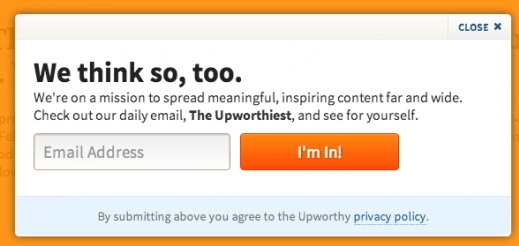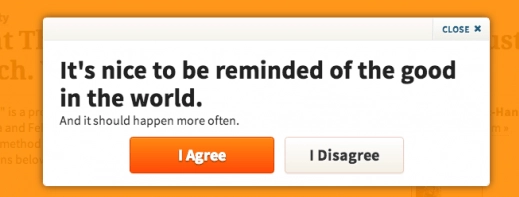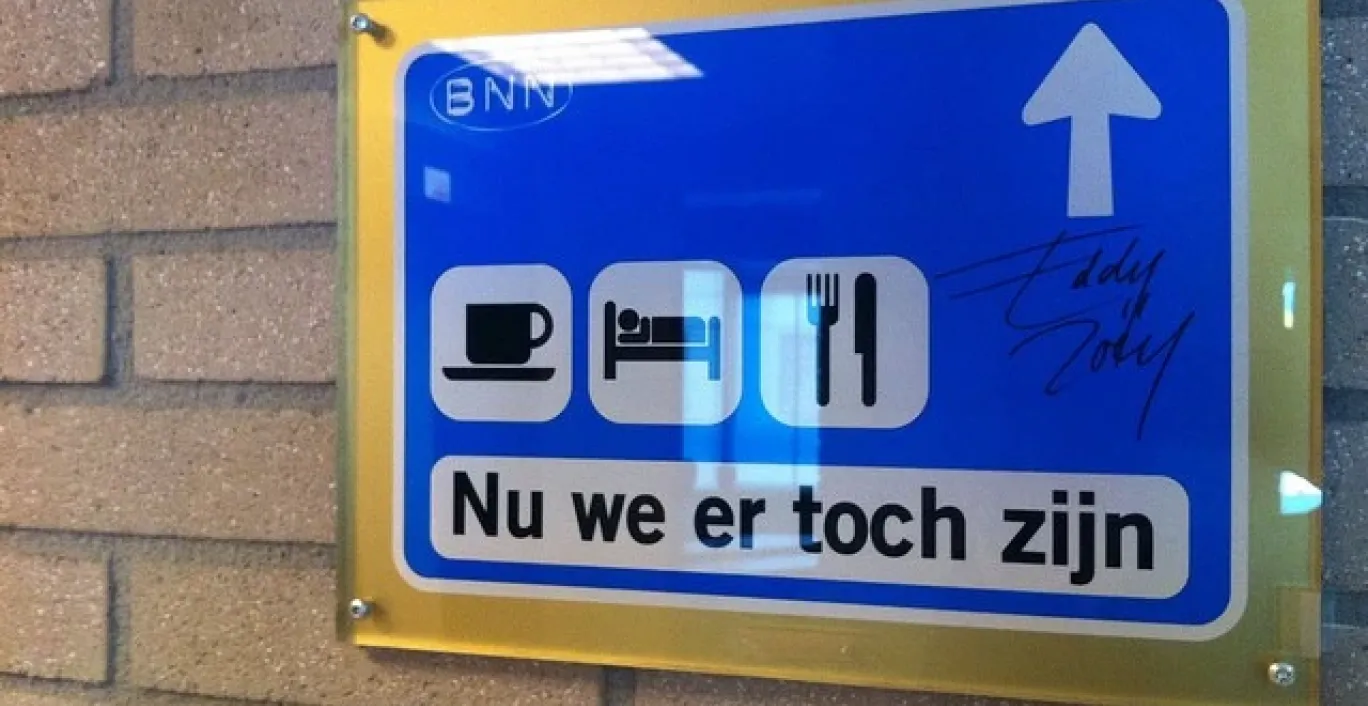People like to stick to things they have said. So if you say you are going to do something then you are also more likely to do it. Go figure yourself, it confirms who you are and what you stand for.
Why it works that way. If you have an opinion, write things down or tell people about them, you no longer have to think about what to do in certain situations. You can just do the same thing you did in the same kind of situation. That saves a lot of thinking. That's kind of the psychology behind it according to Robert Cialdini.
While we are at it
So when people have taken a small step in a certain direction, they want to hold that line. They are then more likely to take the next, (bigger step). That's how it works in your head, often a subconscious process. An example:
In BNN's programme 'Now we're here', Eddy Zoey dives into the country to find out how hospitable municipalities in the Netherlands actually are and randomly rings people's doorbells.
Ding dong.
Eddy: "Hello madam, we are from the programme 'While we are here' and we are investigating hospitality. Are the people in Groningen Hospitable?"
Mom: "Yes"
Eddy: "Are you hospitable?"
Mom: "Yes"
Eddy: "Then perhaps I can have a cup of tea?"
Mom: "Yes, please come in"
Eddy: "Now that I have tea anyway may I perhaps have something to eat?"
Mom: "Of course!"
Et cetera....
Vijf-stappen-commitment-plan
Just what is it that Eddy Zoey does? How do you go about it when you want to ask for something 'big' from someone? The road to commitment in a nutshell:
Step 1. He clearly states the message. (We explore how hospitable Groningen is.) He wants to ask for something big (stay the night), but what he is asking for is meaningful for the recipient (If you cooperate then you are seen as hospitable. If that fits into your set of values then it can be meaningful for you.)
Stage 2. He chops the process into small pieces. (First a cup of tea, then a biscuit, then a meal, then a place to sleep...)
Stage 3. He makes those little pieces very concrete. ("Can I have a cup of tea?", instead of, "Do you have something to drink for me?")
Step 4. He asks in a way so that people can say 'yes' to it. (Are you hospitable? Can I go to the toilet?)
Step 5. He makes the steps so small that people cannot actually say 'no'. (From tea to a biscuit is a small step.)
Meaningful and reliable
No sooner said than done. Fortunately, you can only convince people to do something if they themselves want to do it. Otherwise, it would be deception or coercion. So if you are going to use the principle of commitment and consistency, what you offer must be meaningful to the recipient. You can use as many tactics as you want, but if the recipient doesn't see the point, you can forget it. Both offline and online.
So commitment and consistency has everything to do with being (wanting to be) trustworthy. If you do what you say then that makes you trustworthy. If I say I am hospitable, I can hardly refuse someone a cup of tea afterwards. It would make me less trustworthy. The same obviously applies to organisations. If you say things as an organisation then you have to do them. Reliability is important in ourselves, but also in others.
Example: Kroodle insurance
Kroodle Insurance makes clever use of commitment and consistency. On the site they make it easy for you to like their Facebook page. On their Facebook page Kroodle actively seeks dialogue with their fans and asks for commitment from their visitors in small steps. Moreover, by liking a page, as a fan you show your commitment to friends in your network. And if you publicly say 'yes' to a particular brand, the step to becoming a customer is again smaller.
On the site of Upworthy the principle is also cleverly applied. If you want to read an article, they first ask you a catchy question (to which you almost have to say 'I agree'). Then they ask you to sign up for their daily email. Clever, I'm in!


Some concrete tips for your site
So a great principle that 'commitment and consistency', for when you want to convince your visitors of your idea or your product. Provided you handle it well, of course. As said, you do have to come up with something meaningful, otherwise there is no point. A few points for your site to consider:
Make sure you always do what you say.
Actively seek dialogue with your visitor (otherwise it becomes difficult to 'commit' to anything).
Offer small steps for your user. Make it clear what the visitor will get if he takes the step.
Set questions on your site that people can answer with 'yes'.
Meld je aan voor onze nieuwsbrief en ontvang maandelijks praktische inzichten, tips en tricks om je op weg te helpen naar online groei!
Vul hieronder jouw e-mail in en ontvang direct een handig weetje 🙂
